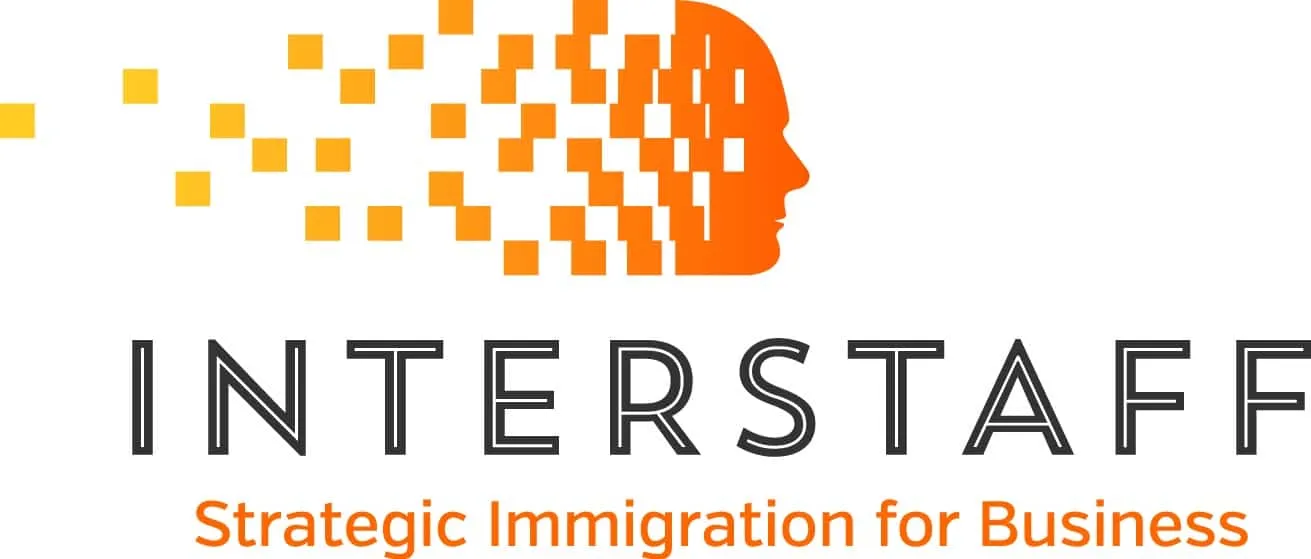Labour Market Testing For UK And Other Passport Holders | International Trade Obligations

Navigating visa changes in Australia can be complex, and mobility provisions under International Trade Agreements can make it even more difficult for employers to understand when Labour Market Testing is required.
Written by Sheila Woods (MARN: 0533879) of Interstaff 3 August, 2023
As you may know, LMT refers to the process of advertising locally for a position before a sponsoring a visa holder for work in Australia. It usually takes at least four weeks and includes specific requirements to conduct all local advertising in the four months prior to submitting an application to nominate a visa holder.
But where exemptions apply for LMT under International Trade Obligations, employers can bypass this process and more quickly engage skilled migrants from particular countries on a Subclass TSS 482 Visa for work in Australia.
To clarify recent developments on how LMT exemptions apply to UK and other passport holders under International Trade Agreements, here’s an explainer addressing:
- Complexities behind practically applying mobility provisions in International Trade Agreements – particularly in relation to the Australia-UK Free Trade Agreement
- How the LMT exemption for UK passport holders applies under the Government’s current interpretation of the provisions
- An update on Labour Market Testing for citizens of the below countries, as per International Trade Obligations:
- China
- Japan
- Malaysia
- Mexico
- Thailand
- Vietnam
How has the Department of Home Affairs come to a decision on how the LMT Exemption applies to UK passport holders? | Complexities in applying mobility provisions
Unfortunately, over the past two months there was considerable confusion about how the provisions of the Australia – UK Trade Agreement operated and the Department of Home Affairs had been unable to confirm how the LMT exemption would apply.
- In June, the Department’s website informed that an International Trade Agreement (ITO) exemption would apply to all UK passport holders engaged for a 482 Visa – effectively communicating a blanket exemption from LMT for UK passport holder nominees.
- In early July, the website stated that the exemption would only apply to UK passport holders that meet ‘a category of LMT exemption’ under the Trade Agreement.
- The Australia-UK Trade Agreement contains several categories of exemption in its mobility provisions including UK intra-company transferees, independent executives and contractual service suppliers.
- Within the category of contractual service suppliers are conditions such as eligible sectors of work, which vary depending on whether the contract service supplier is a UK enterprise or Australian business.
- The complexity of these categories led to different interpretations, particularly about the understanding of ‘contractual service supplier’ and whether or how it conditioned the Trade Agreement LMT exemption for UK citizens.
- The Migration Institute of Australia raised concerns to the Department that the interpretation of ‘contractual service suppliers’ may not cover UK nominees that weren’t covered by the first two categories.
- In response to these concerns, the Department informed in early July that it was working through practicalities of how its interpretation of the Trade Agreement mobility provisions would apply to LMT requirements. As a result, some applications submitted from early June were effectively on hold while the Government considered this.
- The Department now seems to have worked through practicalities and, based on its current interpretation of the Agreement, has been approving UK passport holder nominees without LMT and without requiring sponsors to clarify the category of mobility provision they are seeking approval under.
How does the LMT exemption for UK passport holders apply under the Government’s current interpretation of the provisions?
Under the Government’s current interpretation of the Trade Agreement provisions, applicants will be considered in each of the exemption categories and those that do not fall into the intra-company transferee or independent executive groups will be considered as contractual service sellers.
The effect of this interpretation is that all UK passport holders should be exempt from LMT provisions for the Subclass 482 Visa because they meet an International Trade Obligation exemption.
Based on this, organisations and UK passport holders seeking to work in Australia can now begin to benefit from a wide application of the LMT exemption.
What exemption categories are specified in the Australia-UK Free Trade Agreement mobility provisions?
As mentioned, the effect of the Department’s current interpretation of the provisions is that all UK passport holders should be exempt from LMT provisions for the Subclass 482 Visa because they meet an International Trade Obligation exemption.
This broad application indicates that the categories described in the Trade Agreement may no longer be particularly relevant when determining if the LMT exemption should apply, though unfortunately the Department’s website does not provide clarity on this and we rely upon its activity in approving applications and any updates to its website to understand that this is the case.
To provide context on the matter, we have included the category information below.
The Trade Agreement describes several categories set out in its mobility provisions including:
- Intra-company transferees – such as an executive, senior manager or specialist
- Independent executives – for establishing and operating a branch in Australia
- Contractual service suppliers – including:
- Employees of a UK enterprise with a contract of service in Australia and;
- Employees engaged by a business that is lawfully and actively operating in Australia. The business must have a contract to supply a ‘Service under contract’ within Australia, rather than the visa applicant having a contract to supply a service to the Australian company.
Contractual service suppliers are also described as those engaged for work in an eligible sector, which differ depending on whether the enterprise is actively operating in Australia or if the employee is working under a UK enterprise.
Eligible sectors for service contracts of enterprises actively operating in Australia are listed in the agreement as follows, with conditions attached to several sectors:
- Legal services
- Engineering services and Integrated engineering services
- Management consulting services and related services
- Architectural, urban planning and landscape architectural services
- Computer and related services
- Market research and polling services, and research and development services
- Telecommunications, transport, postal and courier, and translation and interpretation services
- Insurance and related services, and other financial services
- Mining
- Services incidental to agriculture and animal husbandry
- Manufacturing
Eligible sectors for service contracts of UK enterprises are listed as the above plus:
- Taxation advisory, accounting and bookkeeping services
- Advertising services
- Site investigation and environmental services
- Related scientific and technical consulting, and technical testing and analysis services
- Travel agency and tour operator services
- Maintenance and repair of vessels, rail, road, aircraft equipment and personal and household goods
How do Labour Market Testing exemptions benefit organisations and skilled migrants from the UK?
Usually, organisations must undertake local advertising for a role in very specific ways to meet Subclass 482 Visa LMT requirements. This includes strict requirements relating to:
- The platforms used to advertise the role
- The length of time the role is advertised
- The length of time the advertisement is valid for nomination purposes
- Content and salary stipulations for the advertisement
- Identifying responses received from candidates
Given that the process of LMT can take weeks to complete, the exemption under the Australia-UK Free Trade Agreement will allow organisations to fill positions affected by skill shortages more quickly in cases where they have identified a suitable candidate from the UK.
The ITO exemption will also benefit skilled migrants from the UK, who may be able to start work in Australia more quickly if sponsored for a visa.
Update on Labour Market Testing for citizens of other countries under International Trade Obligations
With the Government’s new interpretation of mobility provisions for UK passport holders, the way in which LMT exemptions apply to citizens of other countries under International Trade Obligations have also come into question.
At this stage it is unclear whether a blanket exemption, similar to the effect of the interpretation for the Australia-UK Trade Agreement, may apply to citizens of other countries with a Trade Agreement – as this will depend on the way in which the Government defines ‘LMT exempt categories’ for each country.
LMT exemption information on the Government’s website is frequently changing and it appears that the Government is yet to finalise its interpretations of provisions under International Trade Agreements.
We therefore encourage you to continually consult the Department’s website or contact Interstaff’s team of Registered Migration Agents to discuss your circumstances and whether an LMT exemption may apply to citizens/nationals of China, Japan, Malaysia, Mexico, Thailand, Vietnam.
Interstaff | Australian Skilled Migration Specialists
The complexity in the interpretation of Trade Agreement provisions and their application to Australian migration law has been illustrated by the uncertainty surrounding the Australia-UK Free Trade Agreement in recent weeks. It begs the question why LMT requirements for Subclass 482 Visas have not been significantly reformed or removed entirely.
Almost a year ago at the Jobs and Skills Summit, nearly all stakeholders agreed that current LMT arrangements are onerous and not focused to the purpose they were created for, especially at a time of skills shortages.
Certainty and clarity in this area will hopefully emerge once the Government confirms how it will reform migration. We expect announcements about change at any time, as the Government received the outcome of an independent following the Migration Review it received in May this year.
To discuss how International Trade Obligations apply and whether they are suitable for your migration requirements, we encourage you to contact Interstaff’s Registered Migration Agents.
Interstaff provides strategic advice to businesses and individuals on various visa and migration solutions, including how Trade Agreements impact global mobility arrangements.
Established in 1988, Interstaff has over 35 years of Australian visa and migration experience and provides strategic immigration advice to businesses and individuals Australia-wide and internationally. MARN: 0533879.
